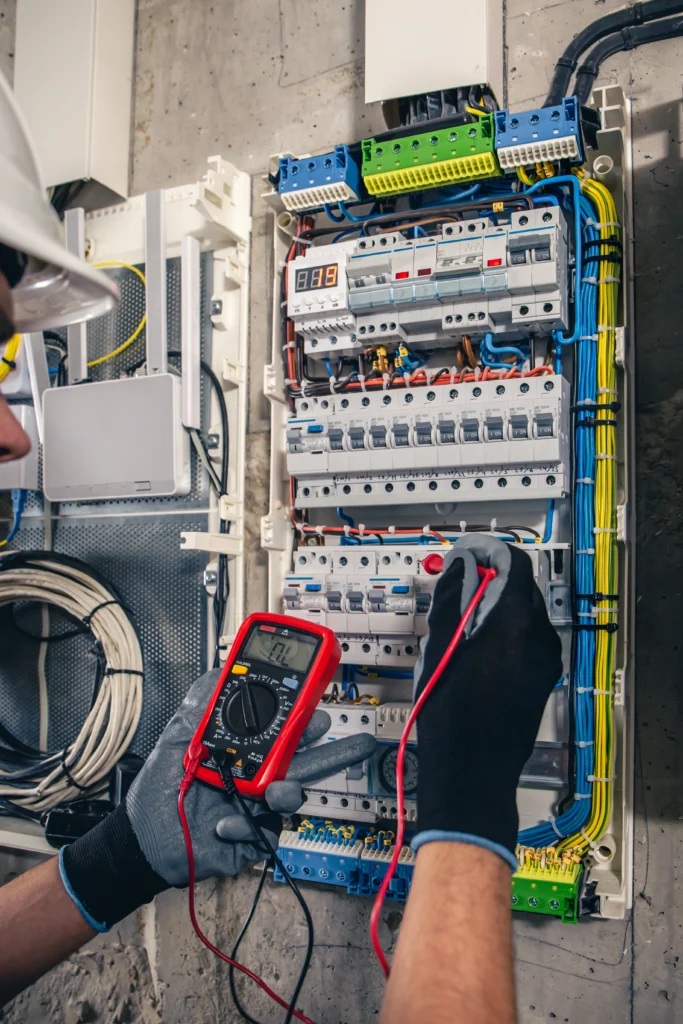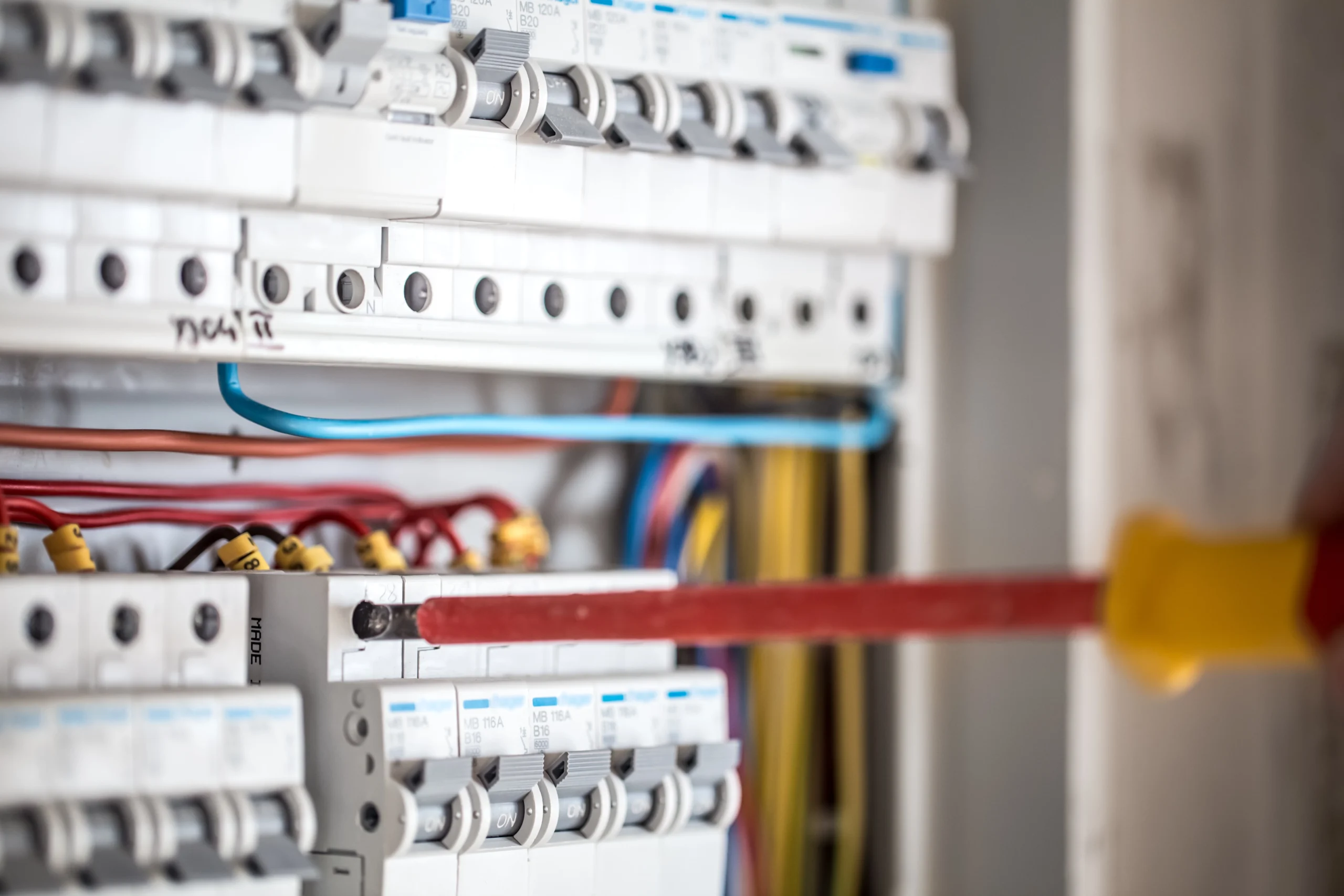How to Choose the Right Circuit Breaker for Your Home or Business
Your Safety Starts with the Right Circuit Breaker
Have you ever experienced a power outage that left you confused about what went wrong—or worse, smelled something burning near your breaker panel and didn’t know what to do? Choosing the right circuit breaker might not seem exciting, but it’s one of the most critical decisions you’ll make for your home or business. It’s more than flipping switches; it’s about safety, compliance, and peace of mind.
Electrical issues can cause fires, damage expensive appliances, and even threaten lives. So whether you’re upgrading your electrical system or setting up a new space, knowing how to choose the right circuit breaker is your best protection against danger and unnecessary costs.
Let’s walk you through it.
Table of Contents
What Is a Circuit Breaker and Why Should You Care?
Understanding the Basics of Circuit Breakers
Think of a circuit breaker as a bodyguard for your electrical system. It monitors the flow of electricity in real-time and springs into action the moment something goes wrong. Unlike a fuse that melts and needs replacing, a circuit breaker simply trips—and can be reset once the issue is resolved.
These devices are housed in your breaker panel and serve as the silent protectors of every room, outlet, and appliance you depend on daily.
What Dangers Do Circuit Breakers Prevent?
Here are some of the electrical hazards that a properly chosen and installed breaker can protect you from:
- Overloads – Too many devices drawing power from one circuit
- Short circuits – Faulty wiring or broken components causing a surge
- Ground faults – Dangerous current paths to the ground, common in wet areas
- Arc faults – Sparks that could lead to fire, especially behind walls
So, what you choose and how you install it really does matter.
Types of Circuit Breakers: Know Your Options
Choosing the right circuit breaker starts with knowing what’s available. Here’s a breakdown:
Residential vs. Commercial Breakers
| Type | Ideal For | Voltage | Mechanism | Cost Range |
|---|---|---|---|---|
| Standard Single Pole | Basic home outlets/lights | 120V | Thermal trip | $5–$15 |
| Double Pole | HVAC, ovens, dryers | 240V | Thermal/magnetic trip | $10–$25 |
| GFCI Breaker | Kitchens, bathrooms | 120V | Ground fault interrupt | $20–$40 |
| AFCI Breaker | Bedrooms, hallways | 120V | Arc fault detect | $30–$50 |
| Industrial Breaker | Factories, warehouses | 277V+ | Magnetic | $100+ |
Each type serves a specific function, and using the wrong one could compromise your safety or violate code requirements.
How to Choose the Right Circuit Breaker
Now, let’s get to the heart of it. Here’s how you make an informed choice:
1. Voltage Rating
Start by identifying your voltage needs.
- Homes typically use 120V or 240V systems.
- Businesses might need higher voltage ratings, depending on the machinery or lighting systems.
Don’t guess—always check your electrical panel and speak with a licensed electrician if unsure.
2. Amperage Load
This is crucial. You must match the breaker’s amp rating to the devices or circuits it’s protecting.
- 15A – Standard for lights and small outlets
- 20A – Used for kitchens, bathrooms, and garages
- 30A and above – Necessary for dryers, HVACs, water heaters
⚠️ Overloading a breaker can cause overheating and fire risks.
3. Choose the Right Type
Each breaker has a unique job:
- GFCI for wet areas like bathrooms and outdoor outlets
- AFCI for bedrooms and living areas to prevent fire hazards
- Double Pole for heavy-duty appliances
- Industrial Breakers for high-load commercial equipment
4. Panel Compatibility
Your panel may only support certain breaker types. Don’t try to force-fit a breaker—match brand, size, and model carefully. Using incompatible breakers can result in poor connections or failed protection.
5. Environment Matters
Is the panel located in a damp basement or an open garage? You’ll need breakers rated for moisture or corrosion resistance. In commercial spaces, you may need tamper-resistant or explosion-proof models.
When Should You Upgrade Your Breaker?
If your current breaker is giving you issues, you might need more than a quick fix.
Common Signs It’s Time to Upgrade:
- Frequent tripping – Breaker can’t handle the load
- Burning smell – Wires or breaker overheating
- Buzzing noises – Loose connections
- Hot to touch – Overloaded or damaged
- Old fuse boxes – Outdated and unsafe
Upgrading isn’t just about capacity—it’s about protecting everything connected to that circuit.
DIY or Call a Pro?
Let’s talk installation.
Can You Do It Yourself?
If you’re replacing a breaker with the exact same type and size, and you know electrical safety rules, it might be okay. But for most people—especially with any commercial or high-voltage work—it’s smarter (and safer) to leave it to a licensed electrician.
Cost Expectations
- Residential installations: $50–$300
- Commercial systems: $500–$5,000+, depending on complexity
- Panel upgrades: Up to $3,000
Remember, cheap electrical work can cost you more later—in repairs, fines, or worse.
Maintenance Tips: Don’t Set It and Forget It
Even the best breaker needs occasional attention.
Here’s What You Should Do:
- Monthly test GFCIs and AFCIs using their “Test” button
- Visual inspection every few months for rust or damage
- Listen for buzzing, clicking, or other unusual sounds
- Keep the panel dry and free of debris
- Hire an electrician once a year for a full inspection
Staying proactive helps avoid costly repairs—and keeps your system running safely.

Your Final Word: Don’t Gamble with Electricity
You now understand what a circuit breaker does, how to choose the right one, and what to watch out for over time. The reality is, electricity is unforgiving. One wrong breaker could result in property damage, injury, or worse.
So, take your time. Do your homework. Ask a professional when needed. Because when it comes to electricity, safety is the smartest investment you’ll ever make.
FAQs: Everything You Still Want to Know About Circuit Breakers
What size breaker do I need for my outlets?
Most outlets use 15A or 20A breakers. Kitchens and bathrooms typically require 20A for added safety and load capacity.
Can I mix brands of breakers in my panel?
No. You must use the same brand and model type approved for your panel to ensure a proper fit and function.
What’s the best breaker for a small business?
It depends on your equipment and wiring, but typically, double-pole or industrial-grade breakers rated for your voltage are needed.
Why does my breaker keep tripping?
It may be overloaded, worn out, or incorrectly sized for the load it’s protecting. It’s best to diagnose the root cause before resetting.
How often should I replace breakers?
Circuit breakers can last decades, but if you notice signs like frequent tripping or buzzing, it’s time to replace or inspect them.

